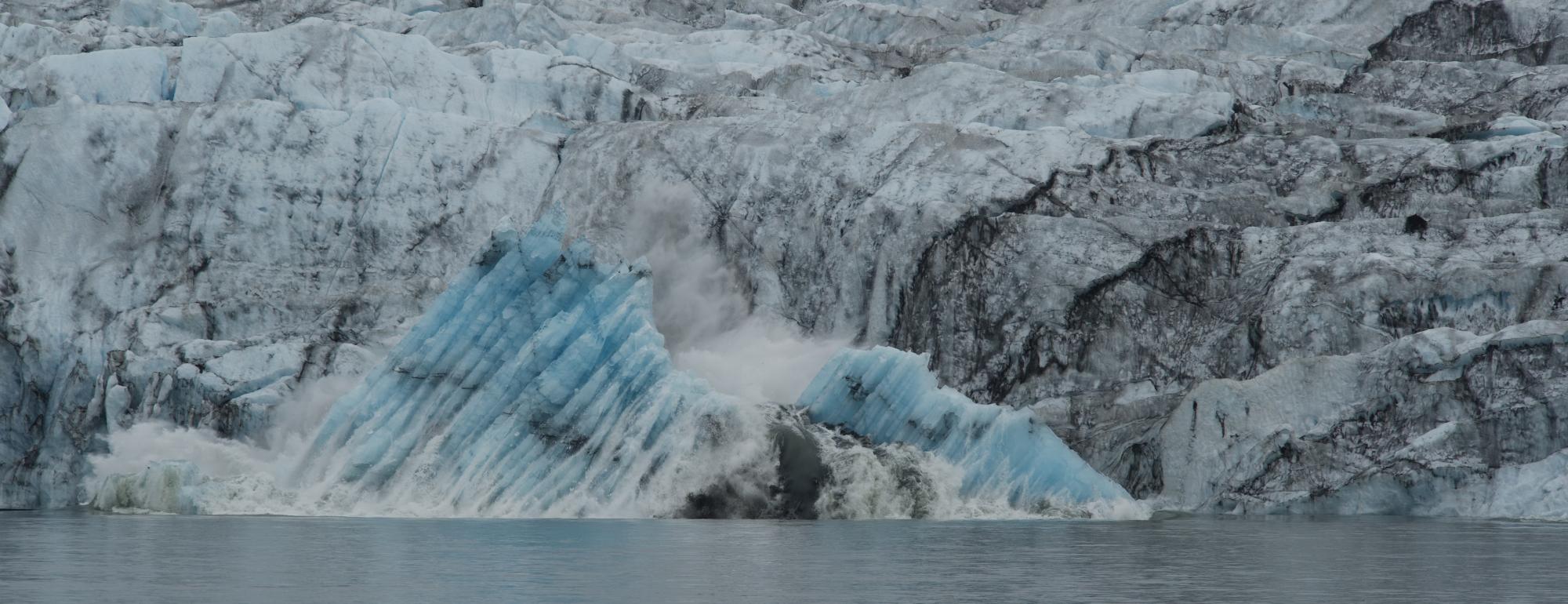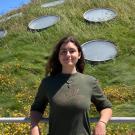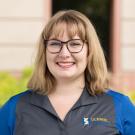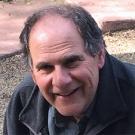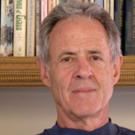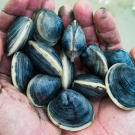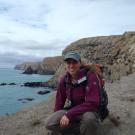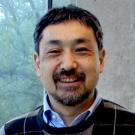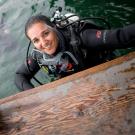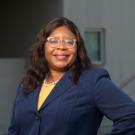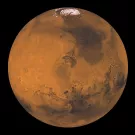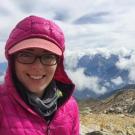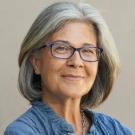Caden Williams, one of our majors in EPS, has been awarded a prestigious 2023 Barry Goldwater scholarship!
Caden is the only Goldwater Scholar from UCD this year, and one of only 10 in the last six years. Congratulations Caden!
Congratulations to Mandy Rousseau, who has been selected from a very competitive field for a 2023 NACADA Global Outstanding Advising award
From the award notification: "Established in 1983, the NACADA Global Awards Program for Academic Advising honors individuals and institutions making significant impact on academic advising. NACADA is a representative and advocate of academic advising and those providing that service to higher education.”
In Memoriam | Peter Schiffman
It is with great sadness that we share with you that Professor Emeritus Peter Schiffman, passed away suddenly on May 26th, 2023. Peter was a field geologist, petrologist and geochemist, and his research largely focused on hydrothermal systems (active and ancient). In addition, he served as department chair and was for many years the director of the microprobe facility. He was also an avid fan of playing and listening to music, and an upbeat and cheerful presence in the department. He will be sorely missed.
Peter's family will be setting up a memorial fund honoring Peter in lieu of flowers. More information will be posted here when that is available.
In Memoriam | William (Bill) E. Glassley
Bill - a long time Research Associate in our department - passed away suddenly last month while on a trip to Copenhagen, where he was to meet with his Danish collaborators to plan their final field season in Greenland.
Prior to joining us, Bill had a long and distinguished career as a professor at Middlebury College, researcher at Lawrence Livermore Laboratory, and Director of the California Geothermal Energy Collaborative.
In his time at EPS, Bill published influential research contributions on ultra high pressure metamorphism of Archean rocks from West Greenland, a textbook on Geothermal Energy, and a memoir: “A Wilder Time” - winner of several awards for nature and natural history writing and chronicling his many years of field studies in remote regions of West Greenland. https://weglassley.com/
Bill was a caring and compassionate human who always made time for friends, colleagues, and students. For those of us lucky enough to have been considered his close friend, his loss is deeply felt.
Mandy Rousseau | has been awarded Winner in Region 9 Excellence in Advising - Primary Role Advisor
On behalf of NACADA: The Global Community for Academic Advising, congratulations to Ms. Mandy Rousseau for being awarded Winner of Region 9 Excellence in Advising - Primary Role Advisor. They will be recognized at the upcoming Region Conference.
NACADA is the leading association globally for the advancement of student success through excellence in academic advising in higher education. We provide our members with exemplary and innovative opportunities for professional development and personal growth. To learn more about NACADA and our Vision and Mission, visit https://nacada.ksu.edu/About-Us/Vision-and-Mission.aspx.
Hannah Kempf | Some Indigenous People Crushed Up Dead Clams. Maybe We Should Too?
Clamshells could help make the ocean less acidic — a problem that is affecting clams themselves.
In the sea gardens of the Pacific Northwest, [Indigenous] caretakers crushed the shells of harvested clams and mixed the fragments back into the beach. Recent research has shown multiple positive effects of this broken-shell “hash,” including opening spaces in the sediment so young clams can more easily burrow and grow, and releasing chemical cues that encourage larval clams to settle nearby.
Kari Cooper | Mushy Magma Under Yellowstone
Professor Kari Cooper, volcanologist and chair of the UC Davis Department of Earth and Planetary Sciences, wrote a perspective article accompanying the new paper from researchers at the University of Illinois-Urbana Champaign.
Volcanologists used to think of the magma reservoir below a volcano as a single "big tank" of molten rock. A modern view is that the magma reservoir is more like a slushy or snow cone, albeit a very hot one, with both solid and liquid components throughout, Cooper wrote. Collections of liquid magma could range in size from a thin film between solid grains, to blobs a few centimeters across, to much larger pods tens of meters across.
Ryosuke Motani | elected as a California Academy of Sciences Fellow.
"Nominated by their peers and elected by the California Academy of Sciences’ Board of Trustees, Academy Fellows are a group of over 450 distinguished scientists who have made notable contributions to science. This year, the Academy is pleased to welcome 11 new members to this illustrious group."
Alyssa Griffin | has been selected as one of the 2022-23 CAMPOS Faculty Scholars
CAMPOS faculty scholars are exceptional STEMM scientists who are “selected for their transformative thinking, unique perspectives, interdisciplinary approaches, and leadership potential to impact their discipline in profound and enduring ways. Their discoveries, innovations, and technological breakthroughs will contribute to the public good, locally, nationally, and globally. They are role models for future scientists and scholars who share their vision of diversity and inclusion as a key component of academic excellence.”
Estella Atekwana | AGU 2022 Class Of Fellows
Estella Atekwana has been selected as an AGU Fellow in recognition of her remarkable and sustained scientific impact. She joins a prestigious group, since 1962, less than one tenth of 1% of AGU members have been selected to receive this honor each year.
Geerat Vermeij | National Academy of Sciences, 2022 Member
Geerat Vermeij has been elected to the National Academy of Sciences in recognition of his outstanding contributions to paleobiology. Members of the National Academy of Sciences are elected in recognition of their distinguished and continuing achievements in original research. The organization is the oldest scientific academy in the U.S., and membership is considered among the highest national honors for scientists.
Alyssa Griffin | The Capacity to Care On Blue Carbon, Parenthood and Climate Anxiety
Both wetsuit and lab coat constitute office attire for scientist Alyssa Griffin. She’s on a search for blue carbon – the carbon the ocean stores within its sandy seabed, coral and blades of seagrass — and ways to better capture and store it to help reduce the impacts of climate change. Continue Reading
Alyssa Griffin | Appointed Assistant Professor in the Earth and Planetary Science Department
We are thrilled to congratulate and welcome Dr. Alyssa Griffin to our department as the newest member of the faculty. Dr. Alyssa Griffin is a marine biogeochemist researching carbon cycling in coastal ecosystems and working towards a more just, equitable and inclusive earth science community. Continue Reading
Martian Meteorite Upsets Planet Formation Theory | Sandrine Péron and Sujoy Mukhopadhyay
A new study of an old meteorite contradicts current thinking about how rocky planets like the Earth and Mars acquire volatile elements such as hydrogen, carbon, oxygen, nitrogen and noble gases as they form. The work is published June 16 in Science. A basic assumption about planet formation is that planets first collect these volatiles from the nebula around a young star, said Sandrine Péron, a postdoctoral scholar (Péron is now a postdoctoral fellow at ETH Zürich, Switzerland) working with Professor Sujoy Mukhopadhyay in the Department of Earth and Planetary Sciences, University of California, Davis.
Doctoral Fellow Solving Botswana Water Scarcity Crisis | Goabaone Jaqueline Ramatlapeng
EPS graduate student Goabaone Jaqueline Ramatlapeng can vividly remember when she would go without water from domestic pipes for days. Growing up in Kopong, a rural village in Botswana, Ramatlapeng and her family faced a plight that those in surrounding villages knew as well: water scarcity. And when the water did flow, it was salty. “This part of my childhood made me develop a desire to venture into water chemistry research and be resourceful to my country in terms of informing their water management decision-making and devising strategies to augment water supply,” said Ramatlapeng.
Professors for the Future | Elaine Young
EPS graduate student Elaine Young is a 2022-23 UC Davis Professors for the Future Fellow. Professors for the Future (PFTF) is a year-long competitive fellowship program designed to recognize and develop the leadership skills of outstanding graduate students and postdoctoral scholars who have demonstrated their commitment to professionalism, integrity, and academic service.
AAUW International Doctoral Fellowship | Goabaone Jaqueline Ramatlapeng
Goabaone Jaqueline (Jackie) Ramatlapeng has been selected as a 2022-23 recipient of an American Association of University Women (AAUW) International Doctoral Fellowship. Since 1888, AAUW has been one of the largest funders of women’s graduate education, investing in women who go on to change the world.
Isabel Montañez | Carbon, Climate Change and Ocean Anoxia in an Ancient Icehouse World
From UC Davis News: A new study describes a period of rapid global climate change in an ice-capped world much like the present — but 304 million years ago. Within about 300,000 years, atmospheric carbon dioxide levels doubled, oceans became anoxic, and biodiversity dropped on land and at sea. “It was one of the fastest warming events in Earth’s history,” said Isabel Montañez, distinguished professor in the Department of Earth and Planetary Sciences at the University of California, Davis. Montañez’s lab has studied the period from 300 million to 260 million years ago, when Earth’s climate went from a glacial icehouse to a hot, ice-free greenhouse. In 2007, they showed that the climate swung back and forth several times during this period. Read the paper (PNAS)

